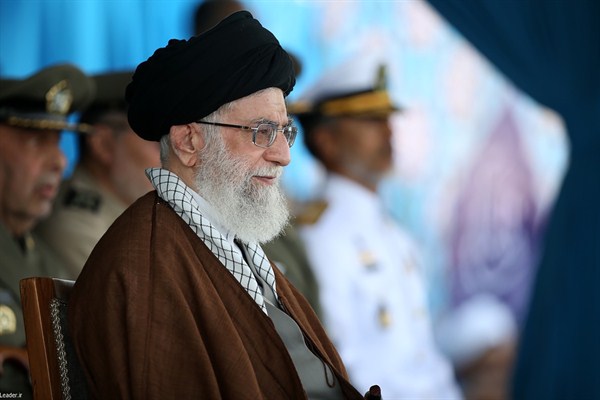Iran has had the chance to change how it engages with the outside world as a result of the nuclear agreement it signed with world powers a year ago, and also as a key player in the crises that haunt the Middle East. But there’s little sign that Tehran wants to take a new tack in its relations with the West or with its neighbors, and political forces in the U.S. also appear uninterested in prospects for normalization with Iran.
Instead, Iran’s supreme leader, Ayatollah Ali Khamenei, seems bent on ensuring that the nuclear agreement signed in July 2015 does not lead to a dramatic restructuring of Iran’s relations with the outside world. While the signatories to the agreement, including the United States, were under no illusions that the deal would quickly lead to a broader rapprochement, there was nonetheless hope in some quarters that it could drive positive change.
The decision by Iran’s leaders to commit to intrusive inspections to prove that the country’s nuclear program was in compliance with its obligations as a signatory to the Nonproliferation Treaty held the promise that Iran was ready to take a different approach to its relations with the outside world. Some further opening to the international financial system—and to Western diplomats—was expected to be a natural outcome as sanctions were lifted and economic interactions expanded and deepened. Iran’s diplomats saw opportunities to build on the agreement and improve Iran’s international standing more broadly.

